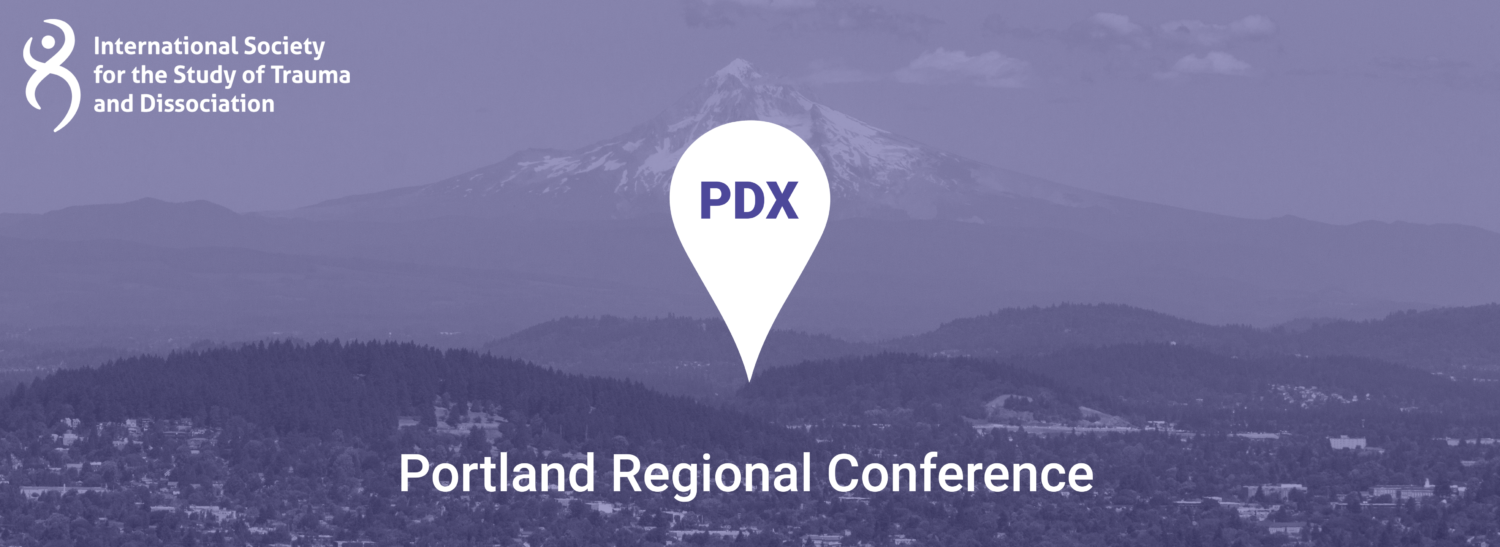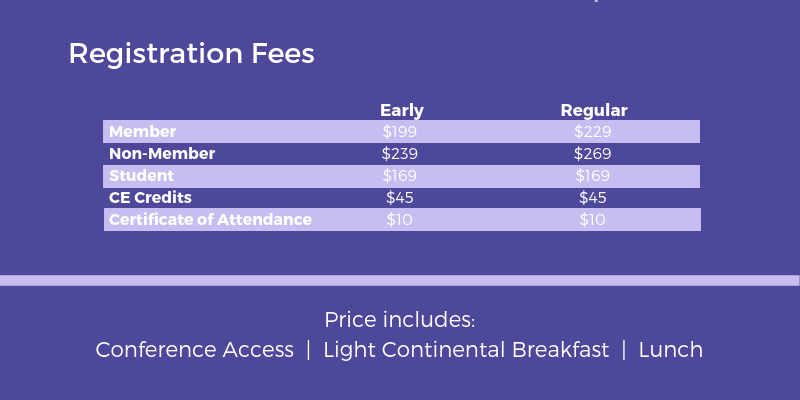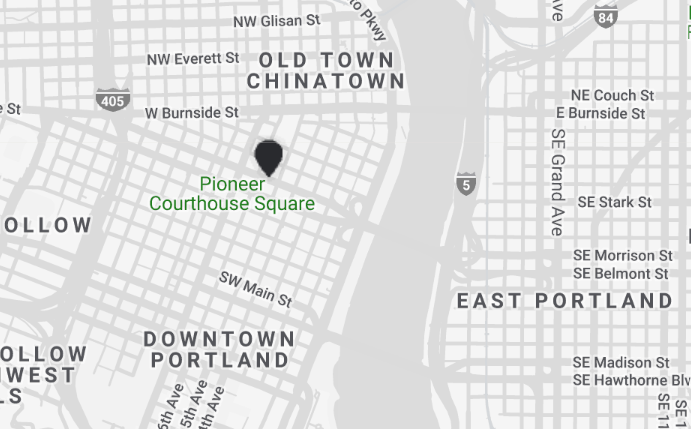Portland Regional Conference

The Body in Traumatic Dissociation
November 1, 2019 | 9:00 AM – 5:00 PM
Kimpton Hotel Monaco Portland
We are excited to announce our 2019 Regional Conference in Portland, OR! Join ISSTD for this one-day conference featuring presentations by D. Michael Coy, Lisa Danylchuk, and Paula Thomson!
8:00am-9:00am Registration & Light Continental Breakfast
9:00am-10:30am Healing Trauma Through Yoga: Body, Mind and Breath
10:30am-10:45am AM Beverage Break
10:45am-12:15pm The Dynamic Body: Autonomic Nervous System, Allostasis, and Stress Responses
12:15pm-1:15pm Lunch
1:15pm-2:45pm Embodiment: Cognition, Memory, Emotional Distress, and Disembodied Dissociation
2:45pm-3:00pm PM Beverage Break
3:00pm-4:30pm Is That Mine or Yours? Feeling the Untold Story in Therapy
4:30pm-5:00pm Simple Yoga and Reiki Practices for Self Care
Registration Details

Early registration ends October 7, 2019.
Student registrations are reviewed and accepted upon approval. Student registrants must provide proof of current status in a related field and must submit verification by email or fax. Discounts for Emerging Professionals (first three years after licensure or graduation) are available, please email a copy of your license or degree to ISSTD HQ for discount codes. All registration fees listed are in US Dollars (USD).
Group rates are available for groups of five or more from the same hospital, facility, or university. Please email the ISSTD HQ for assistance with group rates.
Cancellation Policy
Cancellations must be received in writing via email or fax. A processing fee of $45 will be charged for cancellations received on or before October 28, 2019 at 5:00 PM ET. No refunds will be issued for no-shows. Refund requests will not be accepted after October 28, 2019. Not all requests will be granted. Substitutions for attendees are accepted at any time.
Registration Contact Information
Email: info@isst-d.org
Phone: 202.803.6332
Fax: 202.747.2864
Presenters
Meet our Speakers!
D. Michael Coy, MA, LICSW, is a Seattle-based therapist whose treatment interests include pre-verbal and attachment trauma, addictions/compulsions, and complex trauma and the dissociative disorders. Michael began collaborating with co-presenter Jennifer Madere and Multidimensional Inventory of Dissociation developer Paul F. Dell, PhD, in 2016 to overhaul the MID Analysis and MID Manual. Michael is an EMDRIA Approved Consultant, has intermediate training in clinical hypnosis through ASCH, and is Level I trained in Sensorimotor Psychotherapy. He served on EMDRIA’s Standards & Training committee from 2014 to 2017. Michael wears a number of hats with ISSTD, including Treasurer, Webmaster, and Co-Chair of the EMDR Therapy Training Task Group, which is in the midst of developing ISSTD’s own, home-grown EMDR basic training.
Lisa Danylchuk, LMFT, E-RYT is a licensed psychotherapist and yoga teacher trainer and the founder of The Center for Yoga and Trauma Recovery in Oakland, CA. After teaching in schools, prisons, recovery center and studios for two decades, she created the Yoga for Trauma (Y4T) Online Training, and now trains yoga teachers and mental health professionals across the globe. She is a graduate of UCLA and Harvard University, and serves on the board of the ISSTD. More information at: http://www.howwecanheal.com.
Paula Thomson, PsyD, is Professor in the Department of Kinesiology, California State University, Northridge (CSUN). She is a licensed Clinical Psychologist, reliable Adult Attachment coder, and works in private practice in California. She is Co-Director of the Performance Psychophysiology Laboratory at CSUN, adjunct faculty at Pacifica Graduate Institute and Professor Emeritus at York University’s Departments of Theatre and Graduate Studies (Canada). She was a professional dancer and continues work as choreographer and movement coach in dance, theatre and opera. In 2013, she was named one of the top 20 female professors in California.
Susan Pease Banitt, LCSW is a social worker, psychotherapist and author who specializes in the treatment of severe trauma and PTSD. She has worked in the field of mental health for more than four decades in diverse settings: inpatient, outpatient, and medical with adults and children, and trained in the Harvard medical teaching hospitals in Boston, MA. She is a Karuna Reiki® Master, Kripalu trained yoga teacher (RYT 200), and shamanic healer in the Celtic tradition. In addition, Susan studied Past Life Regression Therapy with Dr. Brian Weiss.
Susan’s book The Trauma Tool Kit: Healing PTSD From the Inside Out won several awards including; the Alumni Media Award for Written Work by Simmons College School of Social Work, the Silver Nautilus Award for Health and Healing and was runner-up at the London Book Fair in the category of Spiritual Books. Susan speaks internationally on the psychological and holistic treatment of PTSD. Her second book: Wisdom, Attachment and Love in Trauma Therapy: Beyond Evidence-Based Practice has just been released! She loves to laugh and in her spare time enjoys performing improvisational comedy. Susan lives and works in Portland, Oregon.
Program
Session One
Presentation Title: Healing Trauma Through Yoga: Body, Mind and Breath
Presenter: Lisa Danylchuk, LMFT, E-RYT
Abstract: Over the past decade, yoga has become increasingly popular in mental health settings, and trauma-informed yoga is making its way into treatment centers, community programs, yoga studios, and beyond. As these practices gain popularity, providers eager to offer yoga often step into the work without a clear understanding of both the healing, and potentially triggering mechanisms.
This session will begin with a simple experiential yoga practice. We’ll then move on to discuss developmental trauma, and identify common ways trauma manifests in the mind and body. We will then outline how yoga philosophy and practices can foster healing, and discuss the importance of preparing a trauma-informed space for your students and clients. After connecting foundational theory in trauma recovery with yoga philosophy and practice, we will explore how yogic practices can directly respond to specific symptoms of PTSD and complex, developmental trauma, highlighting potential triggers and resources. We will close with a discussion of the provider’s experience, both practicing yoga personally, as well as offering yogic practices to trauma survivors.
Learning Objectives
At the conclusion of this training participant will be able to:
- Connect yoga philosophy with commen tenets of trauma theory
- Discern risks and rewards when implementing a yoga program with individuals recovering from trauma
- Identify specific aspects of yoga practices that can alleviate symptoms of post-traumatic stress disorder
Potential to Stress
None (outside of the risk that talking about trauma and the body can trigger associations including memories related to trauma). No upsetting material will be shown.
Session Two
Presentation Title: The Dynamic Body: Autonomic Nervous System, Allostasis, and Stress Responses
Presenter: Paula Thomson, PsyD
Abstract: All behavior is shaped by environmental challenges, whether in real-time or when past events are remembered. The two branches of the autonomic nervous system, the sympathetic and parasympathetic branches, modulate all internal bodily states to meet the demands of the challenge. The recursive afferent and efferent feedback loops between the brain and the body influence cognitive, emotional, and physiologic responses. Meta-representations of bodily signals are encoded in the interoceptive awareness systems; they are connected to the deep subcortical brain stem and limbic structures as well as the higher cortical limbic structures (i.e., orbitofrontal cortex, ventral medial prefrontal cortex, insula). The complex dynamic signaling for the interoceptive regions in the brain and body directly influence behavior and shape embodied cognition and when they function well they serve to enhance regulation as well as cognitive processing. In addition, individual physiologic and emotional states may be shared with others and cause reactive responses in them via networks involved with empathy, theory of mind, and mirror neurons. These same systems are altered in response to high levels of stress leading to allostasis and allostatic loading. These processes directly modify autonomic nervous system responses, which then influence adaptive physiologic and psychological behaviors.
In this presentation, a detailed description of the autonomic nervous system and its complex patterns of reactivity will be outlined, followed by case study examples that illustrate these responses. The presentation will include topics such as physiologic regulation strategies, metabolic demands and deficits, and simple tools to stabilize autonomic stress responses in patients and therapists. Participants will have an opportunity to share their clinical experience and to ask questions related to this topic.
Learning Objectives
At the conclusion of this training participant will be able to:
- Describe the autonomic nervous system and the dynamic processes mobilized during stress
- Discuss interoception and how it relates to empathy and theory of mind
- Recognize dysautonomia and implement strategies to stabilize the autonomic nervous system
Potential to Stress
Mild. Topics include potentially distressing information related to trauma and stress reactions. Grounded practices and re-regulating strategies will be included in the presentation.
Session 3
Presentation Title: Embodiment: Cognition, Memory, Emotional Distress, and Disembodied Dissociation
Presenter: Paula Thomson, PsyD
Abstract: The early developmental sensory-motor stage matures into linguistic symbol acquisitions; this postnatal process actually begins prenatally. Fixed action patterns are encoded into neural network patterns that shape unconscious embodied cognitions about self, others and the world. Embodied cognition implies a memory system that encodes information about physical competencies and contextual perceptual and motor responses to external situations in the physical world. This knowledge is shaped from biological experiences directly gleaned from the human body. Often embodied cognition operates pre-reflectively; instinctive or intuitive responses are mobilized with incredible precision and accuracy. Individual embodied knowledge enhances understanding about other peoples’ movement and intentions as well as informs perceptual understanding about emotional states in others. Interactive multimodal sensory-motor and emotional processes shape the formation of embodied cognition. It is constructed via the specific body we posses, the physical training we experience, and by the particular context within which embodied cognition is grounded.
This session will explore embodied cognition, body memories, emotional distress, and disembodied dissociation. Practical explorations will include assuming body postures to evoke emotional memories, modalities to normalize and enrich these body postures, and creative processing to enhance resilience. Pathological disorders associated with embodied/disembodied states will be examined from an embodied orientation (i.e., bradycardia, chronic fatigue, chronic pain, disordered eating, self-injurious behaviors, depersonalization, toxic shame, and PTSD symptoms). The session will close with participant discussions.
Learning Objectives
At the conclusion of this training participant will be able to:
- Identify fixed action patterns and symbol formation
- Describe strategies to prime memories through body posturing and how to enhance emotional regulation
- Recognize embodied cognition as an interactive relationship with an autobiographical self, with others, and with organizational structures and the environment
Potential to Stress
Mild. Topics include potentially distressing information related to trauma and stress reactions. Grounded practices and re-regulating strategies will be included in the presentation.
Session 4
Presentation Title: Is That Mine or Yours? Feeling the Untold Story in Therapy
Presenter: D Michael Coy, MA, LICSW
Abstract: It is well-established that attachment relationships, most notably between parents and children, can involve non-verbal communication via mirror neurons. This phenomenon, which can also manifest in the therapeutic relationship, is variously described as empathic attunement, resonance, and ‘right brain-to-right brain communication’. This attunement may take on a very powerful dimension in the context of working with persons who manifest complex trauma and dissociative symptoms. Information about the client’s experience may present itself to the therapist in ways that the client may not recognize in themselves, in the form of projection, projective identification, and relational/traumatic enactments. Another dimension of non-verbal communication, however, is what Hopenwasser (2008) calls dissociative attunement, wherein the therapist serves as a “micro-tonal tuning fork” vibrating in resonance with the client’s dissociated emotion, sensation, or other sensory information.
This session will draw upon both the available clinical literature and brief case examples to explore the phenomenon of dissociative attunement, particularly in its somatic dimensions. Different manifestations of dissociative attunement will be discussed, as will contexts in which it might occur, and the observed impact upon the client (and treatment) of an aptly-framed and appropriately-timed reflection of the dissociated experience. Additionally, the toll that this level of ongoing, deeply-felt resonance can have upon the therapist, as well as strategies for emotional cleansing, will be addressed.
Learning Objectives
At the conclusion of this training participant will be able to:
- Define “dissociative attunement”
- Identify three manifestations of dissociative attunement in the psychotherapy relationship
- Identify at least two strategies for managing dissociated emotional material generated by a client
- Identify three strategies that can enhance one’s capacity for attunement
Simple Yoga and Reiki Practices for Self Care
Presenter: Susan Pease Banitt, LCSW
Please note this special session is not eligible for continuing education credit.
Abstract: When dealing with complex trauma and dissociation, many mental health providers encourage clients to practice mind and body awareness, yet struggle to find the time to care for themselves. After a brief discussion of reiki, self-care and the yogic model of the koshas, Sue will lead participants through a gentle self-care practice informed by these modalities. This experiential practice will offer participants an opportunity to practice compassionate awareness of physical, mental, emotional and energetic layers of being. No experience with yoga or meditation required.
Continuing Education Credits
American Psychological Association
CE Learning Systems, LLC is approved by the American Psychological Association to sponsor continuing education for psychologists. CE Learning Systems maintains responsibility for this program and its content.
This conference is eligible for 6 APA credits. APA credits are accepted for Oregon psychologists, social workers and mental health counselors. Additional approvals may be added at a later date.
Explore Portland
In Portland, it’s easy to find limitless recreation, fabulous food, craft beer and flourishing culture. See for yourself, and come early or stay late to enjoy all that Portland has to offer. With no sales tax, Portland is a haven for shoppers. You’ll find retailers large and small, international and indie within easy reach of downtown hotels. The nearby Pearl District is home to galleries, boutiques, chic restaurants and the legendary Powell’s City of Books. An award-winning airport, efficient light rail system and pedestrian-friendly city blocks in the central city make getting around town a real pleasure.

Your Guide to Local Attractions from Travel Portland
Dining, Entertainment and Nightlife
Activities
Venue & Travel
Conference Venue
Kimpton Hotel Monaco Portland
506 SW Washington at Fifth Avenue
Portland, OR 97204
Phone: 503.222.0001
A discounted room rate of $179/night is available to conference attendees. Hotel reservations can be made here or by calling the hotel at 1-800-711-2971 and making your reservation under the ISSTD Portland Regional Conference room block.
To experience the true essence of Portland, a city with plenty of personality, there’s no better anchor than Kimpton Hotel Monaco Portland in all its fascinatingly eccentric glory. From the moment you walk in the doors of our circa-1912 building, which was recently dubbed “Most Beautiful Hotel in Oregon” by Architectural Digest, you’ll feel at home among the eco-chic digs, peppered with eclectic furnishings. We’re consistently ranked in the downtown top three Portland hotels on TripAdvisor, and for good reason — our cozy salon-style lobby, complimentary WiFi and bikes, spacious guest rooms, and the city’s best hosted wine hour. When it comes to Portland hotels, Kimpton Hotel Monaco Portland stands head and toes above the rest.
Travel – Air
Portland International Airport
Address: 7000 NE Airport Way, Portland, OR 97218
Phone: 503.460.4272
Visit website
Travel Distance to Kimpton Hotel Monaco Portland
Approximately 12 miles (30 minutes)
Transportation Options
- Ride Share $30.00 USD
- Taxi $30.00 USD
- MAX Light Rail: $2.50 USD
Travel – Ground
Whether you fly, drive, ride the rails, or take the MAX Light Rail to our front door, it’s easy to find us in downtown Portland. Just look for the bustling historic building in the center of it all.
The MAX Light Rail makes travel around the hotel so much simpler. With all MAX lines running about every 15 minutes, our guests are able to travel from downtown Portland to Beaverton, North Portland, the airport, and many other locations. Just be sure to purchase your ticket before boarding (just $2.50 for an adult to ride for 2.5 hours). For more information on routes and ticket prices, please click here.
Need more specific directions? We’ve got you covered. Look below to find step-by-step driving directions from all points of origin.
Directions from Portland International Airport (PDX)
Estimated MAX Light Rail ride time: 45 minutes
Estimated driving time: 20 minutes
- Follow signs out of the airport for Interstate 205 South.
- Take I-205 South for approximately 2 miles.
- Take the Interstate 84 West/Downtown exit.
- Follow 84 West for approximately 6 miles; stay in the middle lane and follow the signs for Downtown/City Center.
- The highway will split; bear left.
- Stay in the right-hand lane and bear right toward the Morrison Bridge.
- From the bridge, continue straight on Washington Street in the middle lane.
- At the intersection with 5th Avenue, you will see the hotel on your left. Valet parking is located beneath the hotel and the entrance to the garage is on the left side just past the front doors of the hotel.
Directions from Seattle to our Portland hotel
Estimated driving time: 3 hours
- Take Interstate 5 South across the Columbia River to Portland, OR.
- Follow I-5 South to exit 300B (marked Downtown/City Center).
- Stay in the right-hand lane and bear right across the Morrison Bridge.
- From the bridge, continue straight on Washington Street in the middle lane.
- At the intersection with 5th Avenue, you will see the hotel on your left. Valet parking is located beneath the hotel and the entrance to the garage is on the left side just past the front doors of the hotel.
Directions from Salem/Eugene
Estimated driving time: 60 minutes/105 minutes
- Take Interstate 5 North to the I-5/405 North exit.
- Take 405 North to the 4th Avenue exit.
- Continue north on 4th Avenue for about 1 mile to SW Washington Street and turn left.
- Continue 1 block on Washington Street.
- The hotel is located on the left side of the street on the corner of SW Washington Street and 5th Avenue. Valet parking is located beneath the hotel and the entrance to the garage is on the left side just past the front doors of the hotel.

Supporter and Exhibitor Opportunities
Discover New Connections in Portland!
Our conference attendees represent the leading professionals in the world of trauma and dissociation. Our conferences allow for organizations to network with and promote your organization to attendees who have traveled from around the globe to be present. As a supporter or exhibitor, you will have the unique opportunity to tap into this esteemed network of professionals. Don’t miss out on this limited opportunity to connect one on one with psychologists, social workers, counselors and other mental health professionals who use and promote the products and services you have to offer!
ISSTD Organizational Membership Available Now!
ISSTD has launched a new Organizational Membership. This membership is open to treatment facilities, hospitals, multi-clinician practices, government organizations/agencies, and colleges/universities who specialize in the treatment of complex trauma and/or dissociation. Bronze, Silver and Gold memberships include exhibit and supporter opportunities in addition to membership. For more information on benefits and prices of the Organizational Membership with ISSTD, click here!
2019-20 Exhibit Pricing
| Tabletop Exhibit Booth | Additional Registration | |
|---|---|---|
| 2019 Regional Only | $400 | $150 |
| 2019 Regional and 2020 Annual Conference | $1,300 | $350 |
Benefits include:
- One six foot draped table, two chairs, and exhibitor tent card
- Listing on Conference Website
- Copy of Attendee Registration list with contact information
- ONE complimentary registration to the conference (Additional exhibitor registrations can be purchased as noted above)
Exhibitor Add-Ons
- Break Supporter
- Lunch Supporter
- Attendee Flyers
Contact Mary Pat Hanlin, Executive Director via email at mhanlin@isst-d.org for additional information or to develop a custom sponsor package today.
